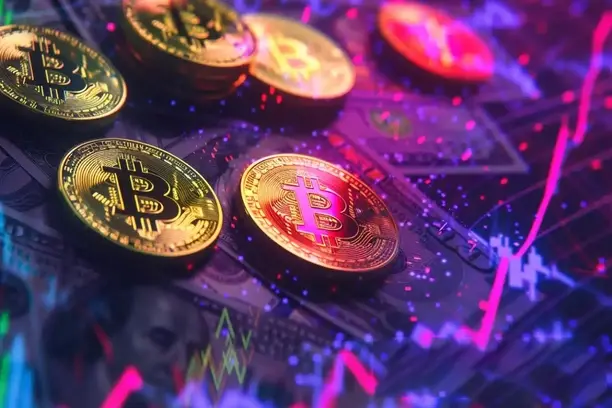In the world of cryptocurrencies, many exchanges and platforms issue their own platform coins, which are not only part of the exchange ecosystem, but also carry multiple functions and values. Whether it's for users to trade, enjoy privileges, or for investors to seek potential returns, the role of platform coins should not be overlooked. This article will analyze the role of Platform Coins, help you understand how they play an important role in the cryptocurrency ecosystem, and reveal their potential value and uses.

Basic Concepts of Platform Coinage
An exchange token is a digital currency issued by a cryptocurrency exchange or platform, usually as part of the platform's ecosystem, which provides a variety of functions and uses. For example, Binance's BNB and OKEx's OKB are typical exchange tokens. These platform coins can be used not only to pay for trading fees, but also to participate in various services and activities of the platform, such as pledging and voting. The issuance of platform coins is usually limited, and some platforms even buy back and destroy some of their platform coins periodically to maintain the stability of the value of the coins.
The main use of platform coins: transaction fee discounts
Reducing transaction costs is one of the most direct uses of platform currencies. Most exchanges offer discounts for using BNB to pay transaction fees. Binance, for example, offers a discount of up to 50% when using BNB to pay transaction fees. In this way, users who trade frequently can save a lot of money, thus improving trading efficiency and returns. For long-term active users, this not only reduces costs, but also increases the value of the platform currency.
As the volume of user transactions increases, some platforms will offer higher discount rates, further encouraging users to hold and use Platform Coins to pay their fees. This will increase the demand for Platform Coins and have a positive impact on their value.
Other Functions of Platform Coins: Pledging and Getting Returns
Many platform coins also have a staking function. Users can receive a certain amount of return by pledging their coins, usually in the form of other assets of the platform or stablecoins. For example, OKEx's OKB coin supports staking and offers different rates of return depending on the amount and duration of the pledge. Pledging is not only a way for users to earn interest, but also helps to improve the liquidity and stability of the platform's currency.
Certain platforms will also offer pledgers eligibility to participate in the platform's internal investment programs or activities, which not only earns additional revenue but also increases the long-term value of the platform's coins. For long-term holders, pledging is an ideal way to support the platform's operations as well as generate additional financial gains through returns.
Investment Value and Price Fluctuations of Platform Coins
As an investment asset, platform coins are characterized by high price volatility due to multiple factors such as market demand, trading volume, platform performance and the overall environment of the cryptocurrency community. For example, the price of Binance's BNB coin has risen steadily since its launch, attracting the attention of a large number of investors. The value of platform coins is usually closely related to the development of the platform. As the platform's user base grows and transaction volume rises, the demand for platform coins will also increase, thus driving up the price.

The risk of platform currencies should not be overlooked. In the event of a technical failure, security breach or regulatory issue, the price of PTC may fluctuate significantly and even face the risk of depreciation. Therefore, for those who want to invest in PTC, it is crucial to understand the operating conditions of the platform and the market dynamics. Risk management and diversification of investments according to the actual demand for PTC and market conditions are effective means to avoid losses.
Community Functions and Governance Role of Platform Money
In addition to being trading instruments and investment assets, many platform coins also serve a community governance function. In some platforms, users who hold a certain number of Platform Coins can participate in the decision-making process of the platform, which is usually expressed as voting rights. Platforms regularly seek the opinions of Platform Coin holders on major decisions, such as product updates and partner selection.
For example, some decentralized exchanges (DEXs) allow holders to vote on which new currencies are allowed to hit the shelves, or to choose the future direction of the platform. In this way, platform coins not only become the currency of the platform, but also an important tool for participating in the platform's governance. For actively participating platform users, this undoubtedly strengthens their sense of belonging to the platform and creates additional value for the coins.
Risks and Challenges of Platform Money
Although Platform Coin has various functions in the cryptocurrency ecosystem, it also comes with some risks. The first is platform risk. If there are problems with the platform's security, technology or operation, it will directly affect the value of platform coins. This is why choosing coins issued by large and reputable exchanges can minimize investment risks.
Regulatory risk is also a major challenge for Platform Coin. With the development of the global cryptocurrency market, more and more countries are beginning to strengthen the regulation of cryptocurrencies, which may affect the liquidity and market demand for Platform Coin. In order to cope with the regulatory risk, certain issuers of Platform Coin will adopt transparent operation and compliance measures, but still cannot completely eliminate the policy risk.
Conclusion: The Multiple Values and Future Development of Platform Coins
Platform Coin plays multiple roles in the cryptocurrency market, not only as a payment tool within exchanges, but also as a core asset for community governance, investment returns and risk management. With the development of blockchain technology and the maturation of the cryptocurrency market, the function and value of Platform Coins are expected to continue to grow.
However, investing in platform currencies still requires caution and understanding of the platform's risks, governance mechanism and market dynamics in order to make informed decisions in this fast-changing market. If you are a cryptocurrency enthusiast or investor, you may wish to gain a deeper understanding of the roles of different platform currencies, and choose the right one according to your needs, in order to make rational investment and risk control.














